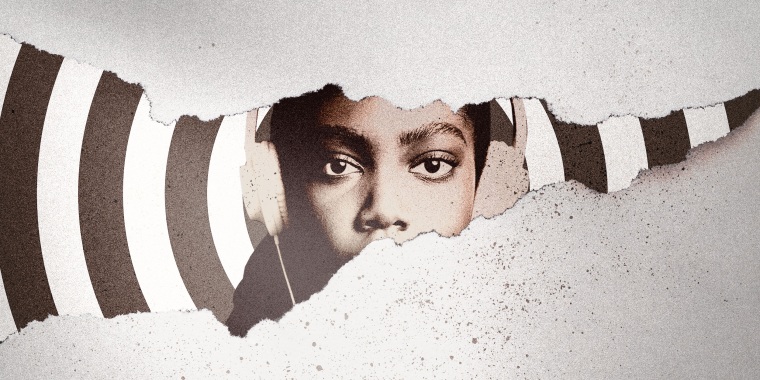True crime is the most common topic among the top-ranked podcasts in the U.S. — and the majority of its listeners are Latino and Black, according to a new Pew Research Center study.
The world of true crime podcasts has long had a reputation of being created by white women, for white women, and about white women. But a survey by Pew throws a wrench into that stereotype, suggesting that, actually, Hispanic and Black individuals make up a larger share of true crime podcast listeners.
Around 43% of regular true crime aficionados are Latino and 36% are Black, compared to 34% who are white, according to the 2022 survey of over 5,000 U.S. adults. In the survey, Black and white adults include those who reported being only one race, and Latino adults who self-described as of any race.
Women are still almost twice as likely than men to regularly listen to true crime podcasts, in particular women with lower educational attainment, according to the poll.
True crime topics make up nearly a quarter of all the top-ranked podcasts — and had the highest average daily rankings on Apple’s and Spotify’s lists of podcasts over a period of six months in 2022.
Of all the U.S. adults who listened to a podcast in the past year, 34% reported regularly listening to podcasts about true crime.
Sociology research suggests that women, more so than men, consume true crime media because of the psychological component, because it teaches them self-preservation tactics and because the victims are more often women. A 2021 media sensation surrounding the disappearance and murder of 22-year-old Gabby Petito was fueled by internet sleuths and true crime fanatics who took it upon themselves to investigate the young woman’s case.
The popularity of true crime among Latino and Black listeners has created a previously untapped market for podcast creators.
MaRah and Taz are the co-hosts of "Sistas Who Kill," a podcast focused on crimes in which the perpetrators are Black women. They started the podcast during the pandemic and carved out a niche that allowed them to shed light on racial disparities between how white women and Black women are treated in the justice system — as both victims and perpetrators.
For their first episode, MaRah and Taz covered the 2010 death of Jarmeca “Nikki” Whitehead at the hands of her twin daughters, Jasmiyah “Jas” and Tasmiyah “Tas” Whitehead. The case was particularly close to home for them because they had attended the same high school as the Whitehead sisters.
MaRah and Taz, whose viewership primarily consists of Black listeners, said that the popularity of true crime podcasts in the Black community is likely because of how relatable the topics can be: “Everybody’s looking for something that they relate to, and I think these are more of [the Black community’s] everyday experiences,” Taz said.
“That relatability also is a cautionary tale,” MaRah added. “We do have listeners that listen to our podcasts with their teenagers on the way to school. It’s a conversation starter that every Black parent has to have with their children about the police.”
Latino true crime podcasts include the bilingual podcast "So Violento So Macabro," led by co-hosts Dee and Aly and affiliated with the Latina Podcasters Network, and the popular Spanish-language podcast "Criminalista Nocturno."
The 'missing white woman syndrome' versus reality
The U.S. has a long history of “missing white woman syndrome,” a phenomenon in which media outlets primarily cover violent crimes in which the victims are attractive, upper middle class white women and girls, sociologists say. This in turn overshadows the fact that female victims of violent and sexual crimes are more likely to be from lower social classes and not white.
Some of the biggest names in true crime media — including the hit shows "Serial" and "My Favorite Murder" — are hosted by white women, which has made it difficult for some true crime podcasts to accurately and sensitively report on crimes involving people of color, according to Fran Evans, co-host of the true crime podcast "Affirmative Murder."
It was this overwhelming focus on white, female victims, and by extension white serial killers, that initially inspired Evans and co-host Alvin Williams to start "Affirmative Murder."
“I’m tired of hearing the same stories over and over again. It’s just been five or six guys that you constantly hear about,” Evans said. “We need to hear other stories.”
Evans told NBC News that their goal is to combat the dearth of coverage of true crime in communities of color.
“There are infamous serial killers in the Black neighborhoods that people don’t know about, like Harrison Graham,” Evans said. “Those people were killing colored women and communities that me and Alvin know about that didn’t get media coverage.”
Although true crime is the most common topic among top-ranked podcasts, it is not the most popular topic Americans report listening to. Comedy, entertainment, arts and pop culture; and politics and government are, respectively, more popular than true crime, according to Pew.
